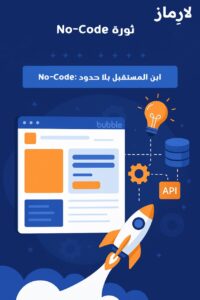Low-Code and No-Code Programming: Revolutionizing Application Development

Businesses today need fast, flexible solutions to stay competitive. For example, low-code and no-code programming transform app development with speed and ease. Consequently, these tools empower everyone, from developers to non-technical users, to create software quickly. Moreover, they drive digital transformation across industries. Thus, startups and enterprises benefit greatly from their efficiency.
What Are Low-Code and No-Code Programming?
Firstly, no-code programming lets users build apps without coding. Its drag-and-drop interfaces are perfect for non-technical users like marketers. For instance, they can create solutions fast without technical skills.
On the other hand, low-code programming speeds up app creation with minimal code. Developers use templates and visual tools for efficiency. Additionally, they can customize parts to meet specific needs.
Why Are These Technologies Important?
Low-code and no-code programming offer key benefits:
- Faster Development: Drag-and-drop tools and templates cut development time. Therefore, businesses launch apps quickly.
- More Innovation: Companies test new ideas without big costs. As a result, this sparks creativity. For example, a small business can build a customer portal in days.
- Less Need for Coding Skills: Non-technical teams join development. Thus, teamwork improves and skill gaps close. For instance, HR teams can create internal tools easily.
- Flexible Customization: No-code suits standard needs. However, low-code allows tailored solutions for unique requirements, like custom e-commerce features.
The Future of Application Development
Low-code and no-code programming are growing fast. In fact, they make app development inclusive and efficient. These tools won’t just replace old methods. Instead, they’ll open new paths for innovation. For example, AI integration will enhance their capabilities soon. Consequently, businesses can adapt to market changes swiftly. Moreover, these platforms will support complex apps, from analytics dashboards to mobile solutions.
Ready to try low-code and no-code programming? Build your next app now. Join the digital transformation revolution!
Keywords: Software Development, Low-Code, No-Code, Digital Transformation.


